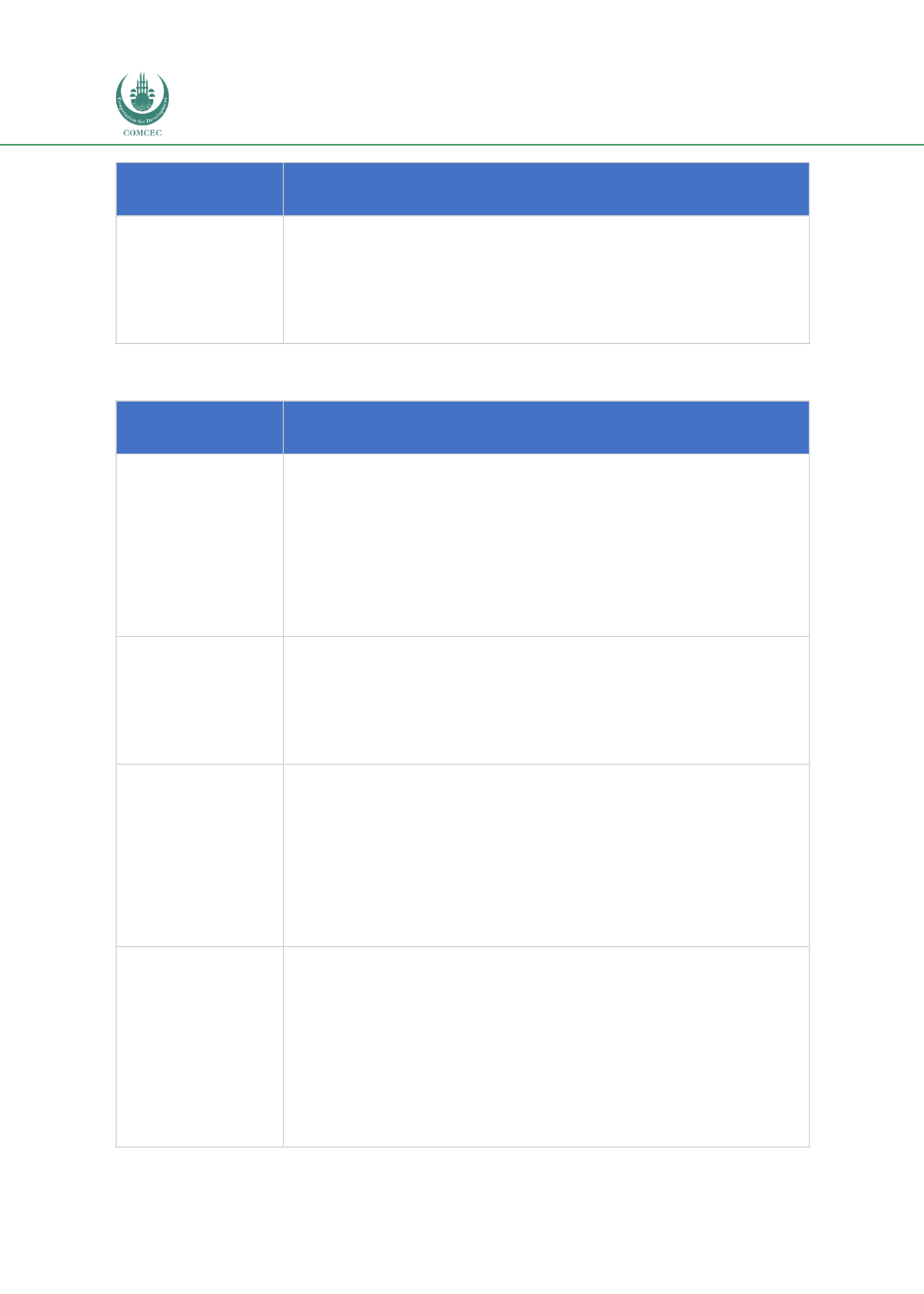

Islamic Fund Management
138
Issues and
Challenges
Demand (Buy Side) Opportunities
3.
Develop a
national savings
strategy
To heighten the appeal of Islamic funds, the government can launch a
national savings and investment strategy, with incentives that
encourage people to invest through responsible investments that create
a social impact. This will in turn expand demand for SRI Shariah funds
while boosting the impact on society and the environment.
Islamic funds can also be promoted as an alternative avenue of
investment, with better risk-adjusted returns than bank accounts.
Source: ISRA
Table 4.19: Recommendations on Improving Supply (Sell Side)
Issues and
Challenges
Supply (Sell-Side) Opportunities
1.
Shariah
approval
At present, it takes time to obtain
fatwas
from the CSO as the CSO has to
deal with many issues arising from the various market segments. A
possible strategy could be to create two sub-committees: (i) one that
works on Islamic banking and
takaful
issues; and (ii) another that works
on Islamic capital market issues (i.e. sukuk, Islamic fund management,
REITs, equity market).
This will help to reduce the time taken to secure Shariah approval and
Shariah advice on issues. A similar approach is adopted by jurisdictions
such as Malaysia, which has two SACs (at the levels of the central bank
and the SC).
2.
Shariah
governance
While internal Shariah compliance has been instituted at the level of
participative banks, there is currently no guidance on external Shariah
audits and reviews. The roles of the parties involved in Shariah audits
and reviews within the different components of the Islamic finance
market (e.g. for sukuk,
takaful
, Islamic funds) need to be properly
defined to ensure effective Shariah governance of products and
procedures.
3.
Developing
industry
standards on
Shariah
screening
approaches,
income
purification and
zakah
processes
To develop the Islamic fund management industry, there is a need to
develop industry standards by the CSO on Shariah screening of stocks,
income purification and
zakah
payment. This will enable the creation of
a list of Shariah-compliant securities, the publication of such a list on a
regular basis, and the development of an Islamic index as the list of
Shariah-compliant securities grows over time. This approach was
followed by Malaysia when it first issued its list of Shariah-compliant
securities in June 1997. The number of Shariah-compliant securities had
been small initially, before rising to 686 as at 24 November 2017
(Securities Commission Malaysia, 2017).
4.
Roadmap for the
development of
the Islamic
finance industry
With a number of regulators involved in the financial sector, there is a
need to establish a coordination committee to oversee the development
of the entire sector. One of the responsibilities of such a committee
would be to develop a blueprint that maps the development of a
harmonised Islamic finance ecosystem in Morocco and defines its vision,
objectives, implementation targets and timeline for the development of
the various components of the ecosystem. This will enhance
transparency and strengthen the coordination efforts of the different
stakeholders in the industry.
There is also a role in developing new institutions within the industry to
promote the further progress of the Islamic finance industry. Examples:
















